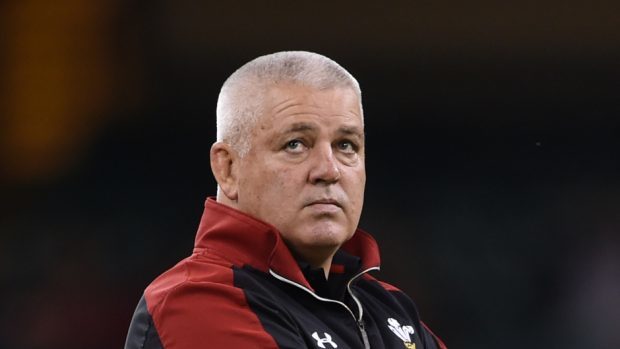It was one of the most irritating backdrops to the much-delayed conclusion to the 2020 Six Nations Championship; the chatter about which of the various players on show might be staking a claim to a place on the British and Irish Lions tour of South Africa next summer.
Even if this was a normal period in sporting history, it might be time to consider the whole question of what exactly the Lions are doing in modern, professional rugby. But, given the current pandemic, talk of lockdowns and empty stadia across so many pursuits, the fact they are still at the forefront of so many conversations strikes me as ridiculous.
And why? Well, let’s start with the congested nature of the calendar in the next 12 to 18 months, even if there is any semblance of normality in 2021. We’ve just finished one Six Nations competition and there’s another pencilled in for the spring.
Then there are domestic English tournaments, Scottish, Irish and Welsh participation in the Pro14, in addition to European events. And yet, somehow, in the midst of a packed programme, the cream of these performers are supposed to skedaddle off to South Africa for an intensive three-Test series against the reigning world champions.
It’s an absurdly gruelling schedule, but there is an even bigger elephant in the room and you don’t have to visit the Kruger National Park to spot it. In the old amateur days, there was something compelling about bringing the best of the British and Irish stars together for quadriennial tours of the Southern Hemisphere countries.
There were no autumn internationals in these days and precious few opportunities for the North and South to lock horns. So it made sense to build up the Lions’ profile.
But none of that applies any longer. It seems as if the Scots are meeting Australia, South Africa or New Zealand every couple of years, whether in summer or winter sojourns or the World Cup. The record books bear this out: since 2010, the SRU’s finest have tackled their Cape counterparts seven times, the Wallabies on six occasions and the All Blacks in four defeats. It would have been even more, but for the cancellation of matches this summer.
And, when you think about it, in what other sport would any group of nations decide to join forces to meet another single opponent? Sure, it might help the South Africans to prepare for the defence of their global crown. But can you imagine the different football associations in Britain and Ireland deciding to pool resources for a tour of Brazil, Spain or Germany?
I’m not arguing that the composite side hasn’t produced myriad scintillating moments throughout their history. I was on the Lions odyssey in 1997 when Jim Telfer and Ian McGeechan’s squad orchestrated a tremendous late victory in Cape Town as the prelude to surviving a ferocious onslaught the following Saturday in Durban where a Jeremy Guscott drop goal – yes! – was the catalyst for an against-the-odds win against the hosts at a hostile Kings Park.
Yet, at that stage, professionalism was still a work in progress. The stars of that tour – which in Scotland’s case included the likes of Gregor Townsend, Tom Smith, Tony Stanger and Rob Wainwright – had cut their teeth in a largely amateur milieu.
There is no longer any need for the rugby equivalent of the Harlem Globetrotters. Which also means that the Barbarians can hang up their ties and cease getting involved in the sort of glorified friendlies which have become an increasing irrelevance in the last decade.
They reached their nadir in the last fortnight, with the repeated breaching of Covid protocols which eventually forced their match against England to be scrapped. And, even as we await disciplinary measures, one hopes that the 12 or 13 well-paid offenders who blithely drove a bus out of their bubble, have the book thrown at them by the authorities.
Sport is having to adapt to rapidly changing circumstances, and nobody is pretending there are any easy answers. But rugby is such a physical, coruscating pursuit that it is simply irrational to try and cram a rising number of high- profile contests on the elite.
That is what the different governing bodies are striving to do, but they must be aware it is doomed to failure.
Several English clubs have already warned they will refuse to release players for Lions duty next year. Given the fact these struggling organisations are paying their wages, that decision doesn’t seem unreasonable.
In the present climate, the administrators should focus on the 2021 Six Nations being staged in front of crowds next summer – if there is a vaccine or an easing of restrictions.
As for the Lions, their roar should be silenced at least temporarily. Or perhaps forever.
